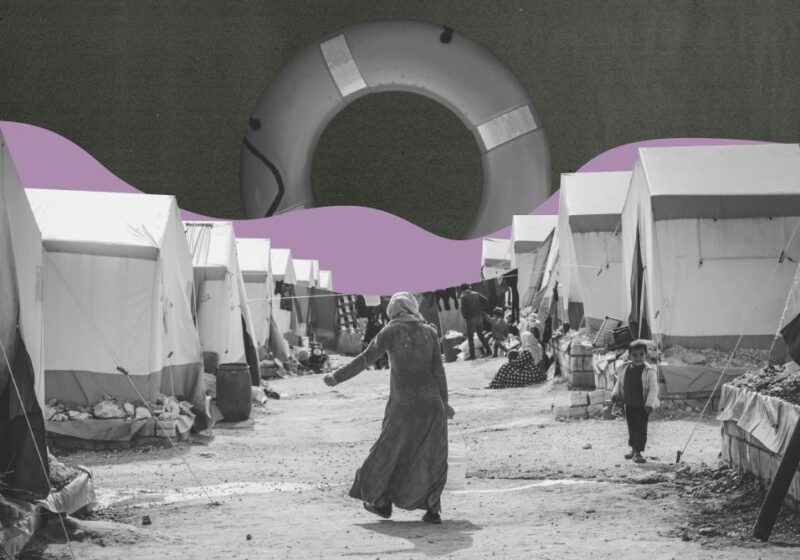
Moroccan citizen lodges complaint that he was unlawfully returned to Turkey on two occasions, along with dozens of others, by the Greek authorities



A report by The Manifold team features allegations that a Moroccan citizen was unlawfully returned to Turkey on two occasions, along with dozens of others, by the Greek authorities.
According to the report, in April 2021 Zakaria Belboudin was arrested by the Greek police in Thessaloniki. He complains that during his detention he was forced, under police pressure, to sign papers without translation or any explanation of their content, and later transported with other immigrants to the Evros border. Belboudin, who had valid reasons to seek asylum in Greece, alleges that here, the refugees boarded boats, with two armed escorts in each boat wearing camouflage without insignia. They were told to be quiet and were then transported to the Turkish side of the river.
The Moroccan states that during transport from Thessaloniki to the border, he was brutally beaten and kicked by police. Furthermore, both Belboudin and the other migrants were robbed by the police, shortly before they were forcibly sent to Turkey. Belboudin said: “They took us out of the vans and took us near the river. There were some other people there with weapons and camouflage uniforms but no insignia. They took our shoes and some peoples’ pants. They took mine. I had no money, but those who had some, they took it from them. I later learned that many people have gone to Greece and been turned back several times, so they have learned ways to hide money. Some sew it into their clothes, so they take everyone’s jackets, if they have them, or whatever clothes they are wearing on top. I remember one shouting: “Money! Money! Do you have money;” And then they put us in the boats.”
The Greek Police acknowledge that the Moroccan was arrested on April 19, 2021 and detained in the police station, where it was established that he had entered Greece from the Greek-Turkish border at Evros, but Belboudin denies this.
As the report notes, the truth could have been established if Belboudin had been properly questioned by police and allowed to contact a lawyer and to present his passport (which had been issued in Germany) and plane ticket with which he had arrived in Greece. Zakaria’s lawyer, Eleni Kisti, was not contacted as part of the investigation, but later presented these documents to the police.
In June 2021, Zakaria attempted, along with a group of other individuals, to cross the border into Greece. Their goal was to reach Komotini and from there to go to Thessaloniki. But a few days later he was arrested and sent back to Turkey again after being beaten.
This is one more case among thousands recorded by the UNHCR, reputable NGOs and international and domestic media. EU Commissioner Ylva Johansson has called for a halt to illegal refoulements.
This evidence raises the issue of the violation of international law, as the push back, or refoulement, of refugees, according to the former President of the European Court of Human Rights (ECHR) Linos-Alexandre Sicilianos, is prohibited by Article 33 of the 1951 Convention on the Status of Refugees, also known as the Geneva Convention.
In a state governed by the rule of law, the authorities must refrain from illegally repatriating refugees and migrants from their territory. International law requires that Greece must ensure effective international protection procedures to protect applicants from war, non-democratic regimes and other risks in their countries of origin.
As the UNHCR notes, European law requires that border surveillance measures be implemented in full compliance with human rights and refugee law, including the 1951 Convention, and that states must respect fundamental human rights, such as the right to life and the right to asylum.
Despite the commitments that stem from European and international law, this evidence suggests that the Greek authorities have violated the rule of law, unlawfully deporting asylum seekers from the country.
Bank Account number: 1100 0232 0016 560
IBAN: GR56 0140 1100 1100 0232 0016 560
BIC: CRBAGRAA
![]()
In a time where the very foundations of democracy are gradually being eroded by the rise of extreme nationalism, alt-right movements, the spread of disinformation and corporate capture, the efforts of organisations such as Vouliwatch are more relevant than ever.
We rely on the generosity of each and every one of you to continue with our efforts for more transparency and accounta
By financially supporting Vouliwatch you support our litigation strategy, our campaigns for transparency and accountability in the political system, the development of new civic tech tools, our research projects and last but not least our impartial and accurate